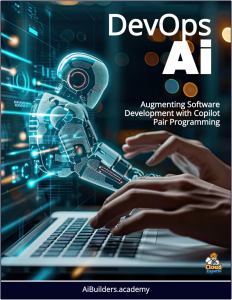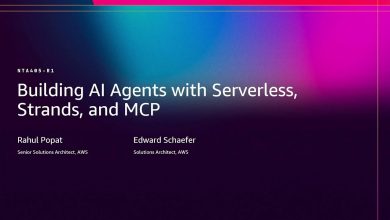 Agentic coding—the paradigm where AI systems autonomously generate, execute, and refine code to solve complex problems—has emerged as a transformative force in software development.
Agentic coding—the paradigm where AI systems autonomously generate, execute, and refine code to solve complex problems—has emerged as a transformative force in software development.
Claude Code is an AI-powered, command-line coding tool from Anthropic that integrates with your terminal to accelerate software development.
It understands entire codebases, executes routine tasks, debugs issues, and handles git workflows using natural language commands.
It’s praised for reducing development time (e.g., completing 45-minute tasks in one pass) and is used for test-driven development, large-scale refactoring, and data science tasks like Jupyter notebook management.
What Is Agentic Coding?
Agentic coding refers to AI systems that act as autonomous agents, capable of performing coding tasks with minimal human intervention. These systems can:
Understand requirements: Interpret natural language prompts or technical specifications.
Generate code: Write functional code in various programming languages.
Debug and optimize: Identify errors, suggest fixes, and improve code efficiency.
Execute workflows: Integrate with development environments, test code, and deploy solutions.
Learn iteratively: Refine their outputs based on feedback or observed outcomes.
Unlike traditional coding assistants that provide suggestions or snippets, agentic coding systems operate with a degree of autonomy, making decisions about how to approach a problem, selecting appropriate tools, and iterating on solutions. This shift from assistive to agentic systems represents a leap toward AI-driven software development.
Claude’s Role in Agentic Coding
Claude, developed by Anthropic, is a conversational AI model designed to compete with models like ChatGPT while prioritizing safety and alignment with human values. While Claude is not explicitly marketed as a coding model, its ability to understand complex instructions and generate high-quality code has made it a valuable tool for developers. Claude’s contributions to agentic coding can be understood through several key features:
Natural Language Understanding for Coding
Claude excels at interpreting nuanced, natural language prompts, allowing developers to describe coding tasks conversationally. For example, a prompt like “Write a Python script to scrape a website and store the data in a SQLite database” is handled with precision, as Claude can break down the task into logical steps, select appropriate libraries (e.g., `requests`, `BeautifulSoup`, `sqlite3`), and produce working code.
This capability aligns with the agentic paradigm, where the AI acts as an intelligent collaborator, translating high-level goals into executable solutions.
Safety and Ethical Considerations
Anthropic’s focus on safe AI sets Claude apart in the agentic coding space. Coding agents, if unchecked, could generate malicious code, introduce vulnerabilities, or produce unintended consequences (e.g., infinite loops or resource-intensive scripts).
Claude’s design emphasizes robustness, ensuring that generated code adheres to best practices and avoids harmful patterns. For instance, when asked to generate code involving user input, Claude often incorporates input validation to prevent security issues like SQL injection or buffer overflows.
Iterative Problem-Solving
While Claude itself does not autonomously iterate on code in the way some specialized coding agents do, it supports iterative workflows by responding to user feedback.
Developers can refine Claude’s outputs by providing additional context or pointing out errors, and Claude adapts its responses accordingly. This iterative dialogue mimics the feedback loops central to agentic coding, where AI systems refine their solutions based on testing or user input.
Cross-Domain Applicability
Claude’s general-purpose nature allows it to handle coding tasks across diverse domains, from web development to data science to automation. For example, it can generate a Flask-based web application, create machine learning models using TensorFlow, or automate file processing with Bash scripts. This versatility makes Claude a valuable tool for agentic workflows, where systems must adapt to varied requirements.
The Evolution of Agentic Coding
Agentic coding has evolved rapidly, driven by advancements in large language models (LLMs), reinforcement learning, and integration with development tools. To understand Claude’s place in this evolution, it’s helpful to trace the key milestones and trends in agentic coding.
Early Coding Assistants (Pre-2020): The precursors to agentic coding were tools like GitHub’s Copilot (launched in 2021) and earlier IDE plugins that provided autocompletion and syntax suggestions. These tools relied on rule-based systems or early machine learning models, offering limited autonomy and requiring significant human oversight.
The Rise of LLMs in Coding (2020–2023): The introduction of LLMs like OpenAI’s Codex and GPT-3 marked a turning point. These models could generate complex code from natural language prompts, enabling developers to describe tasks in plain English. However, these systems were still assistive, lacking the autonomy to execute, test, or refine code independently.
Emergence of Agentic Systems (2023–Present): By 2023, agentic coding systems began to emerge, combining LLMs with execution environments and feedback mechanisms. Tools like Replit’s Ghostwriter, DeepCode, and specialized agents like Devin (by Cognition) demonstrated the potential for AI to autonomously write, test, and deploy code. These systems integrated with APIs, version control systems, and CI/CD pipelines, enabling end-to-end development workflows.
Claude entered this landscape as a general-purpose model with strong coding capabilities. While not as specialized as some dedicated coding agents, Claude’s ability to generate reliable, context-aware code and its emphasis on safety positioned it as a complementary tool for agentic workflows.
Key Trends in Agentic Coding
The main innovations and evolution we’re likely to see in this field include:
- Tool Integration: Agentic systems increasingly integrate with IDEs, cloud platforms, and testing frameworks, allowing them to execute code and monitor results in real time.
- Autonomous Debugging: Advanced agents can identify and fix errors by analyzing stack traces, logs, or test failures, reducing the need for human intervention.
- Collaborative AI: Systems are evolving to work alongside human developers, offering suggestions, automating repetitive tasks, and learning from team workflows.
- Domain-Specific Agents: Specialized agents for domains like cybersecurity, data engineering, or game development are emerging, complementing general-purpose models like Claude.
- Ethical Guardrails: As agentic systems gain autonomy, ensuring they adhere to ethical and security standards is critical. Claude’s safety-first approach aligns with this trend.
Claude’s Limitations in Agentic Coding
While Claude is a powerful tool, it has limitations in the context of agentic coding:
- Lack of Native Execution: Unlike some agentic systems, Claude does not natively execute or test code. Developers must copy and run Claude’s outputs in external environments.
- General-Purpose Design: Claude is not optimized solely for coding, which means it may lack the depth of specialized tools like GitHub Copilot or Devin for complex projects.
- Dependence on User Feedback: Claude relies on users to identify errors or request refinements, whereas true agentic systems proactively iterate based on automated testing.
These limitations suggest that Claude is best used as part of a broader agentic workflow, where it complements tools designed for execution and automation.
The Future of Agentic Coding
The trajectory of agentic coding points toward increasingly autonomous, intelligent, and collaborative systems. Key developments to watch include:
- Self-Improving Agents: Future systems may use reinforcement learning to optimize their coding strategies, learning from successful projects and failures.
- Ecosystem Integration: Agentic coders will integrate more deeply with platforms like GitHub, AWS, and Kubernetes, enabling seamless deployment and scaling.
- Human-AI Collaboration: As agents become more capable, they will shift from assistants to true collaborators, contributing to code reviews, architecture design, and project planning.
- Ethical and Regulatory Frameworks: As agentic systems gain autonomy, ensuring they adhere to ethical guidelines and avoid harmful outcomes will be paramount. Anthropic’s work on safe AI positions Claude as a leader in this area.
Claude’s role in this future will likely involve serving as a safe, reliable foundation for agentic workflows, particularly in environments where ethical considerations and interpretability are critical. Its ability to generate high-quality code while prioritizing safety makes it a valuable component of the agentic coding ecosystem.
Conclusion
Claude Code, while not a standalone agentic coding system, represents a significant step in the evolution of AI-driven software development. Its natural language understanding, safety-first design, and versatility make it a powerful tool for developers exploring agentic workflows.
As agentic coding continues to advance, combining general-purpose models like Claude with specialized tools and execution environments will unlock new possibilities for automation and collaboration. The future of coding is not just about writing code faster—it’s about creating intelligent systems that work alongside humans to build robust, secure, and innovative software solutions.
For developers and organizations looking to harness agentic coding, Claude offers a reliable starting point, bridging the gap between human intent and machine execution. As the field evolves, the interplay between safety, autonomy, and creativity will define the next generation of coding agents—and Claude is well-positioned to contribute to this transformation.



